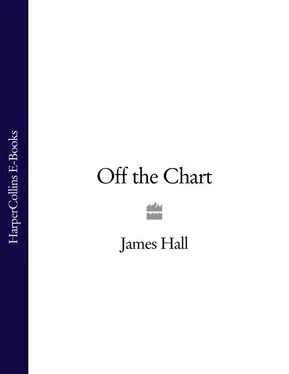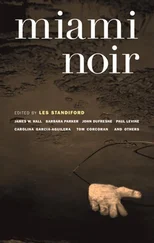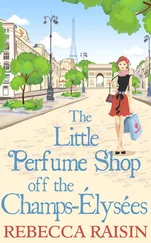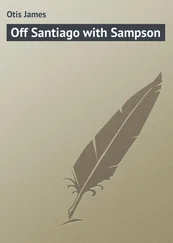For Evelyn, my rock, my love
We are wiser than we know.
—RALPH WALDO EMERSON
Cover
Title Page
Dedication
Epigraph
Prologue
1
2
3
4
5
6
7
8
9
10
11
12
13
14
15
16
17
18
19
20
21
22
23
24
25
26
27
28
29
30
31
32
33
Acknowledgments
About the Author
Praise
Also by the Author
Copyright
About the Publisher
Glittering with moonlight and sweat, Thorn and Anne Joy were lying naked in Thorn’s bed when she launched into the story of her turbulent childhood in Kentucky. Her parents murdered. Lunacy and violence. Pirates, pirates, pirates.
Until that night, they’d shared nothing about their pasts. A breathless fever possessed them for their monthlong affair. An unquenchable horniness. Bruises from the clash of hipbones, flushed and tender tissue, their heat rekindled with the slightest rasp of skin on skin. For hours at a time they barely spoke, and when they did it was increasingly clear the chief thing they had in common was this agitated lust.
Then that night in a calm moment she told the vivid story of her youth, details she claimed to have never shared with anyone before. Saying she had no idea why she was confessing this to him but blundering ahead anyway.
Struck by the oddity of this tight-lipped woman opening up in such detail, Thorn lay quiet, listening intently. At the time, of course, he had no inkling that lurking in that account of Anne’s youth was a foretelling of the torture and torment of Thorn’s own loved ones, the kidnapping of a child, the murders of many others. But even though there was no way in hell he could have known, no way he could have heard in her gaudy tale the dark rumbles of his own future, that didn’t keep him from blaming himself forever after.
It was a raw afternoon in eastern Kentucky. The winter sky had turned the brittle gray of old ice, but Anne’s outlaw father and her older brother, Vic, were shirtless in the cold, hammering together the rickety frame under her mother’s watchful gaze. As Anne described it, the Joys’ yard was treeless and mangy, their property perched on a bluff overlooking the grim, defeated town of Harlan.
Anne stood at her bedroom window watching her family work in the front yard. For an hour she’d ignored her mother’s calls to join in. Only seven years old, Anne already knew she wanted nothing to do with this foolishness.
By dusk the structure was finished and her father and brother had strung Christmas lights along its edges and raised the Jolly Roger flag on its mast. Skull and crossbones flapping in the frigid breeze. When her father plugged in the cord, the flimsy creation burst to life in a phosphorescent flash. Twenty feet high, fifty feet long with red and green and blue lights twinkling in a perfect outline of the brawny hull and blooming sails of a pirate schooner.
For the next eight years the contraption stood in their front yard with those strands of colored bulbs flickering all through the gloomy winter nights of that Kentucky hill country and even into the first soft breaths of spring and the muggy, star-dazzled evenings, blinking in time with summer crickets and the whoop of owls, blazing incessantly into the fall when the sky above the sugar maples filled with the sweet perfume of rot and looming cold; those lights shimmered and winked and that pirate ship sailed endlessly through the rocky, mortified seas of Anne Joy’s youth. Visible for any sane man in that region to see – a ludicrous beacon, a steady rainbow pulse of don’t-give-a-damn lunacy.
Since her own childhood in the Florida Keys, Anne’s mother, Antoinette, had been consumed with pirates, a juvenile hobby that over time turned into a full-blown obsession and finally was to become the compulsory enthusiasm of the entire Joy clan. Even Jack Joy succumbed. Anne’s father was a raven-haired, extravagantly tattooed ex-navy man who drove a fuel-injected Nash Rambler to distribute a variety of unlawful drugs for the Woodson brothers to truck stops throughout eastern Kentucky, Tennessee, and West Virginia. Even such a roughneck as Jack Joy yielded to his wife’s fixation and became an authority on Long John Silver, Captain Kidd, and Blackbeard and eventually came to measure his own daring and lawlessness by their far-fetched standards.
Anne learned to endure the schoolyard catcalls, the relentless smirks, and those chilling midnights when carloads of boys parked out front and hooted and whistled and slung beer cans at Antoinette’s pirate ship until she or Jack snatched the shotgun from the brackets on the back of the front door and stalked outside and fired a warning shot over the bow of that landlocked schooner.
Other than those visits from local hooligans, the Joy home was peaceful and Anne’s parents’ love affair was luminous and sweet-hearted. Although the townsfolk gave Jack Joy a wide berth whenever he went out in public, Anne never caught so much as a whiff of violence on him once he entered those four walls. There was even a boyish innocence about the way he adored his wife and indulged her every caprice.
Each evening when the meal was done, Jack Joy sat in hillbilly rapture while Antoinette read to the family from the book that provided that night’s entertainment. Radios and televisions were banished from the Joys’ home, and the only books allowed were those that transported them across the centuries to the days of swashbuckling sea raiders.
‘There’s other books, you know,’ Anne said before the reading commenced one night. ‘About other kinds of people.’
‘But not one of those people measure up to buccaneers.’
‘And how would we ever know that, Mama?’ Anne said.
‘Pirates are beyond compare. They made their own rules, roamed at will, survived by their wits. Even famous outlaws like Jesse James were trapped inside the straight and narrow of highways and city streets. They drove cars; they wore ordinary clothes. But pirates were untamed, free to wander. To move with the wind like the big hawks and eagles. High up on the heavenly currents.’
‘And they had cool eye patches,’ Vic said. ‘And hooks for hands.’
‘We’re not one bit free,’ Anne said. ‘Look around us. This isn’t free.’
‘Pirates are in our blood, Anne. You should be as proud of your heritage as the rest of us are. Sooner or later you’re going to have to accept it.’
‘Even if your daddy did run liquor,’ Anne said, ‘that makes him a smuggler, not a pirate.’
‘Same difference,’ her father said. ‘A seafaring outlaw.’
‘A crook in a boat,’ Vic said.
‘The point is, darling,’ said Antoinette, ‘we’re not common folk. Our bloodline sets us apart.’
‘I don’t want to be special,’ Anne said. ‘I want to be like everyone else.’
‘Too late,’ Vic said. ‘You’re weird to the bone.’
On Saturdays the four of them would sometimes drive a half-day to the closest movie house to catch a matinee of Captain Blood or Morgan the Pirate , and on the return voyage Antoinette would dote on the dozens of Hollywood atrocities that had been committed on the truth, grilling Vic and Anne, forcing them to chime out the movie blunders.
True pirates never sailed galleons, those sluggish warships that took a full hour to alter course. They used swift and nimble schooners like the one in the Joys’ front yard or sloops or small frigates, sometimes brigantines and three-masted square-riggers. And no pirate under God’s blue heaven ever relied on such a pansy-ass fencing foil as Errol Flynn waved about. Those real-life buccaneers swung heavy cutlasses that would slash a man in half in a single roundhouse blow.
Читать дальше












